By Masih Khalatbari
In the interactive above, explore The Smokin’ Cigar and listen to its founder, Trae Zammit, tell the story of how he got to open the cigar shop. Base Image: Trae Zammit poses in his cigar shop, The Smokin’ Cigar, on Oct. 28, 2019 (Masih Khalatbari/ T•).
A middle-aged man in a dress shirt with the top link unbuttoned walks into The Smokin’ Cigar. He’s a regular here.
He walks past the wooden Indian carvings, luxury lifestyle magazines, the life-size statue of Casablanca actor Humphrey Bogart in a white tux and the case of Hugo Boss pens, heading straight for the glass cigar room. Although hundreds of imported premium cigars are on display, he knows exactly what he wants and even where it is before an employee catches up to him and unlocks the door.
The air shifts as he steps in, suddenly pleasant and calming. A humidifier maintains the room at the same environment in which the tobacco is grown, picked and sometimes hand-rolled. A breezy day in Havana, Cuba, perhaps.
Within minutes, the customer secures his favourite cigars, which now sit in a stitched basket on the other side of the counter from where he has his black credit card prepared. He refuses the receipt, “you know..”, he trails off, mumbling something about “the wife.”
Later, a younger man walks in wearing baggy sweatpants and a beanie, headphones blasting music to his ears. He’s out of place. It turns out he makes cannabis oil and came to buy butane the store happens to have for high-end lighters. Employee Juliano Blanco remarks he has never seen a customer like that before.
The world of cigars is filled with almost formal customs and protocols. Even the way you cut a mouthpiece into a cigar in order to smoke it changes the experience. For a rookie, stepping into the delicate-seeming cigar room seems like a minefield, but not for Trae Zammit who founded The Smokin’ Cigar in 1997. He’s well-versed in all the proper etiquette when it comes to premium tobacco products.
He wears a blue blazer, a neatly folded handkerchief in its chest pocket, a fine watch and designer glasses but if a faucet starts leaking, he doubles as the repairman. “As a small business owner you got to be a tax expert, you’ve got to be a human resources expert, you got to be an expert in your field, you got to be an accountant, you got to be a plumber, you know, you gotta wear a lot of hats,” he says.
The homey Leaside neighbourhood surrounding the Smokin’ Cigar is familiar to Zammit. As a teenager, he would drive the family pool business van down the very same roads, admiring the picturesque homes along Forest Hill, the scenic landscaping surrounding the rough asphalt, the mom-and-pop shops lining Bayview Avenue, thinking “what a cool area to live in.”
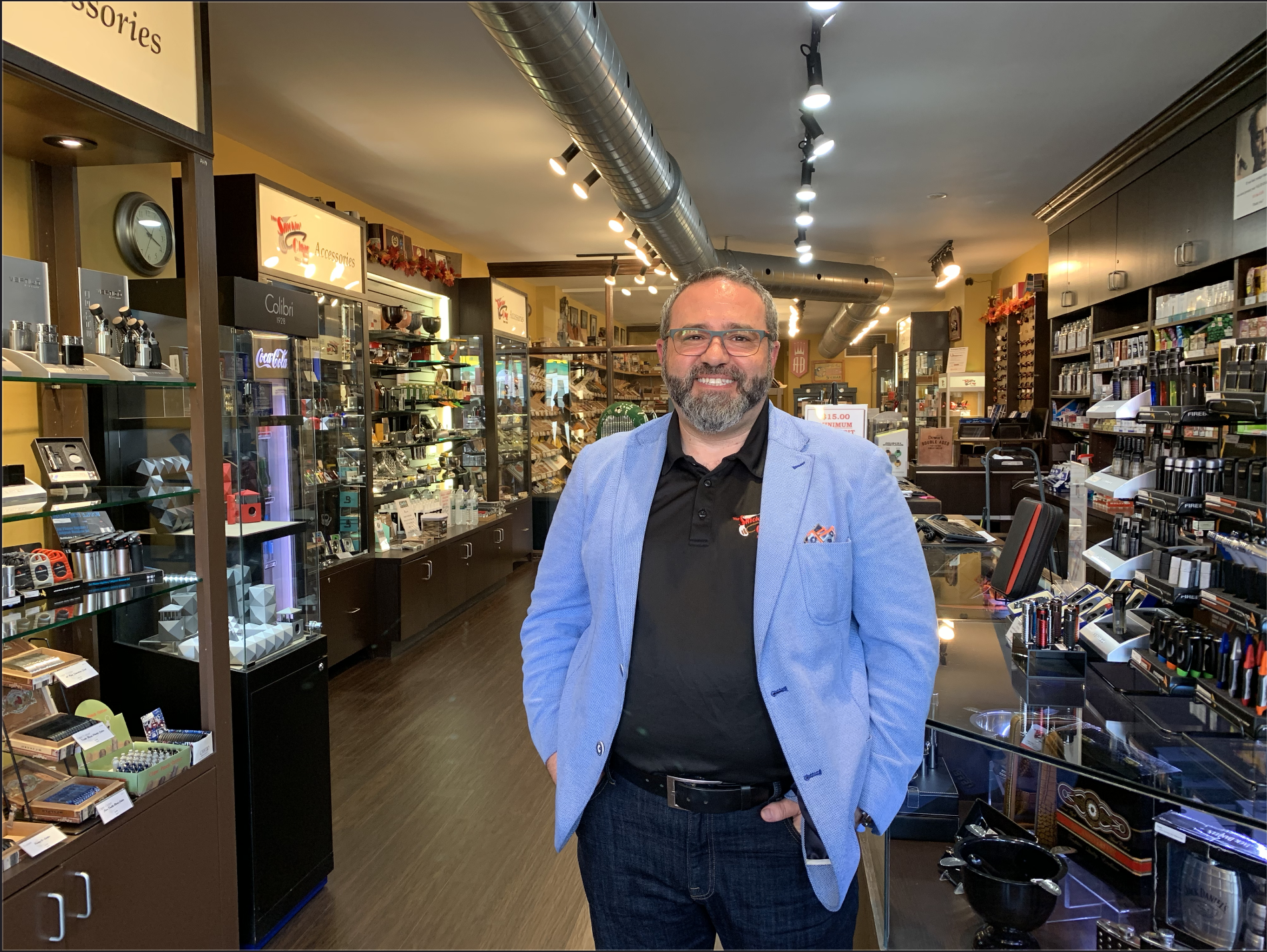
Trae Zammit poses in his cigar shop, The Smokin’ Cigar, on Oct. 28, 2019 (Masih Khalatbari/ T•). 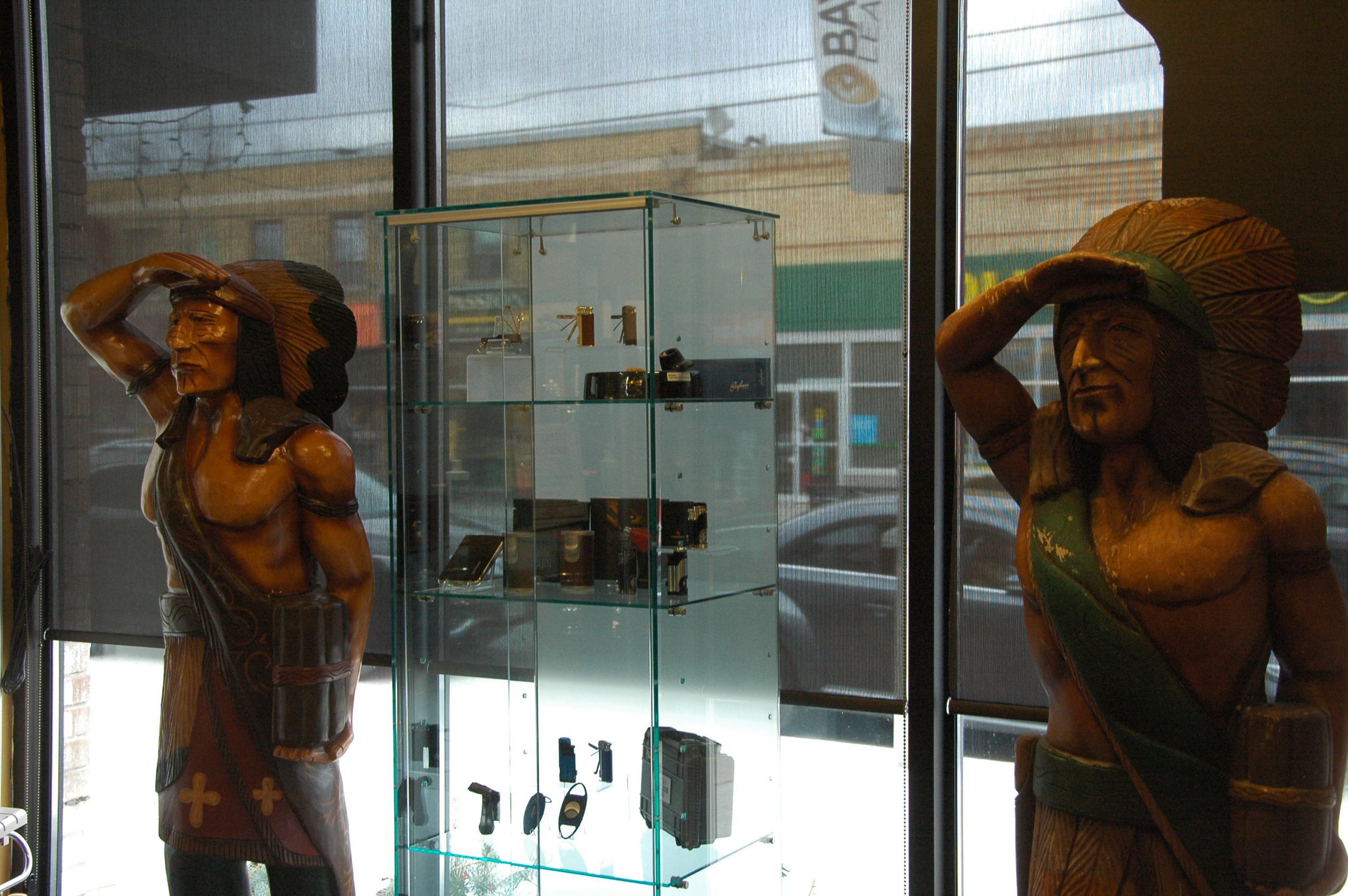
Wooden “Indian Chief” carvings greet customers at the front of The Smokin’ Cigar, a traditional sign of a tobacconist. Pictured on on Oct. 28, 2019 (Masih Khalatbari/ T•). 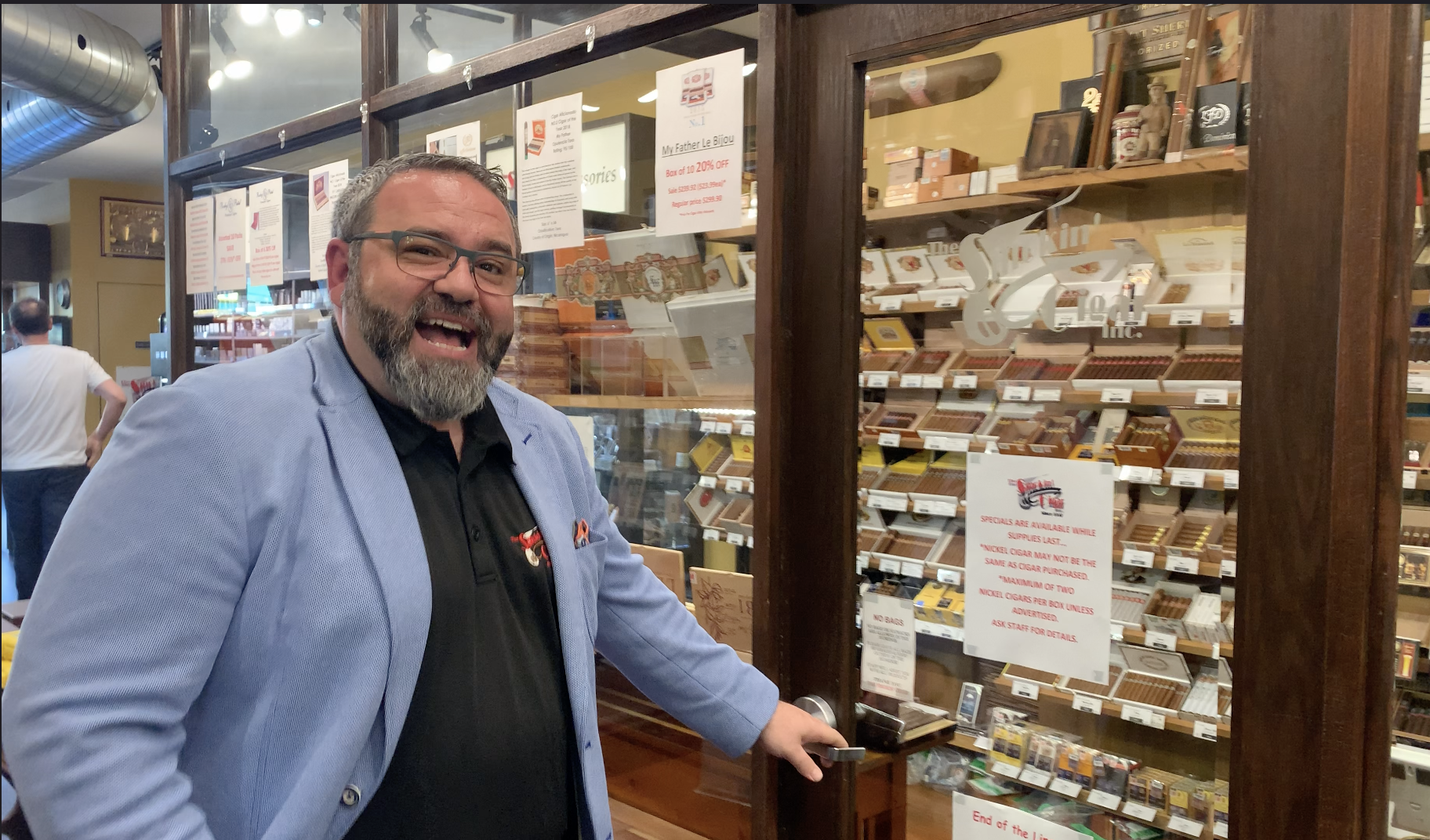
Trae Zammit jokes around as he unlocks the door to his cigar room on Oct. 28, 2019 (Masih Khalatbari/ T•). 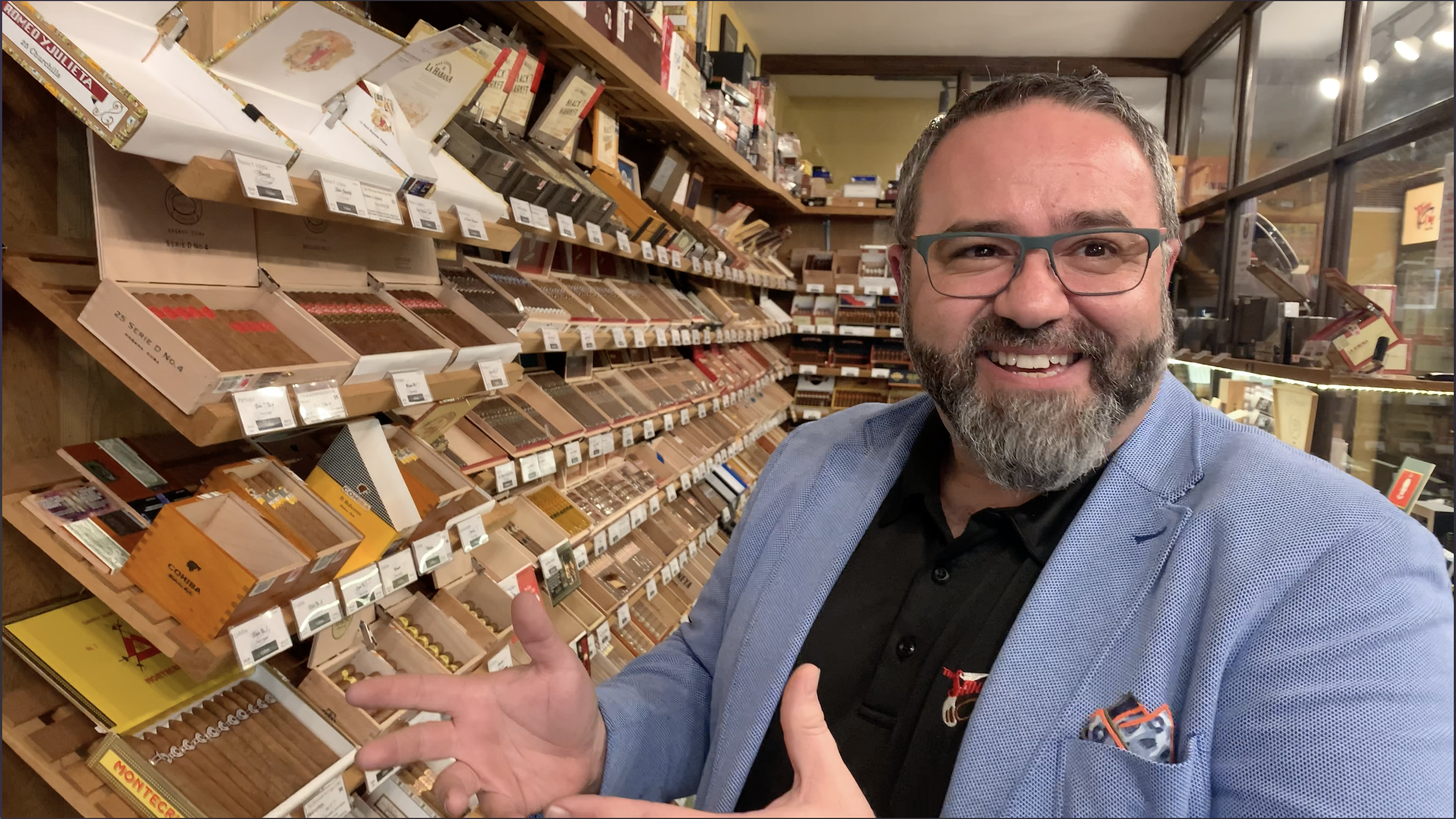
Trae Zammit smiles as he marvels at the uniqueness of premium cigars of which, he estimates, there are 35,000 different varieties on Oct. 28, 2019 (Masih Khalatbari/ T•). 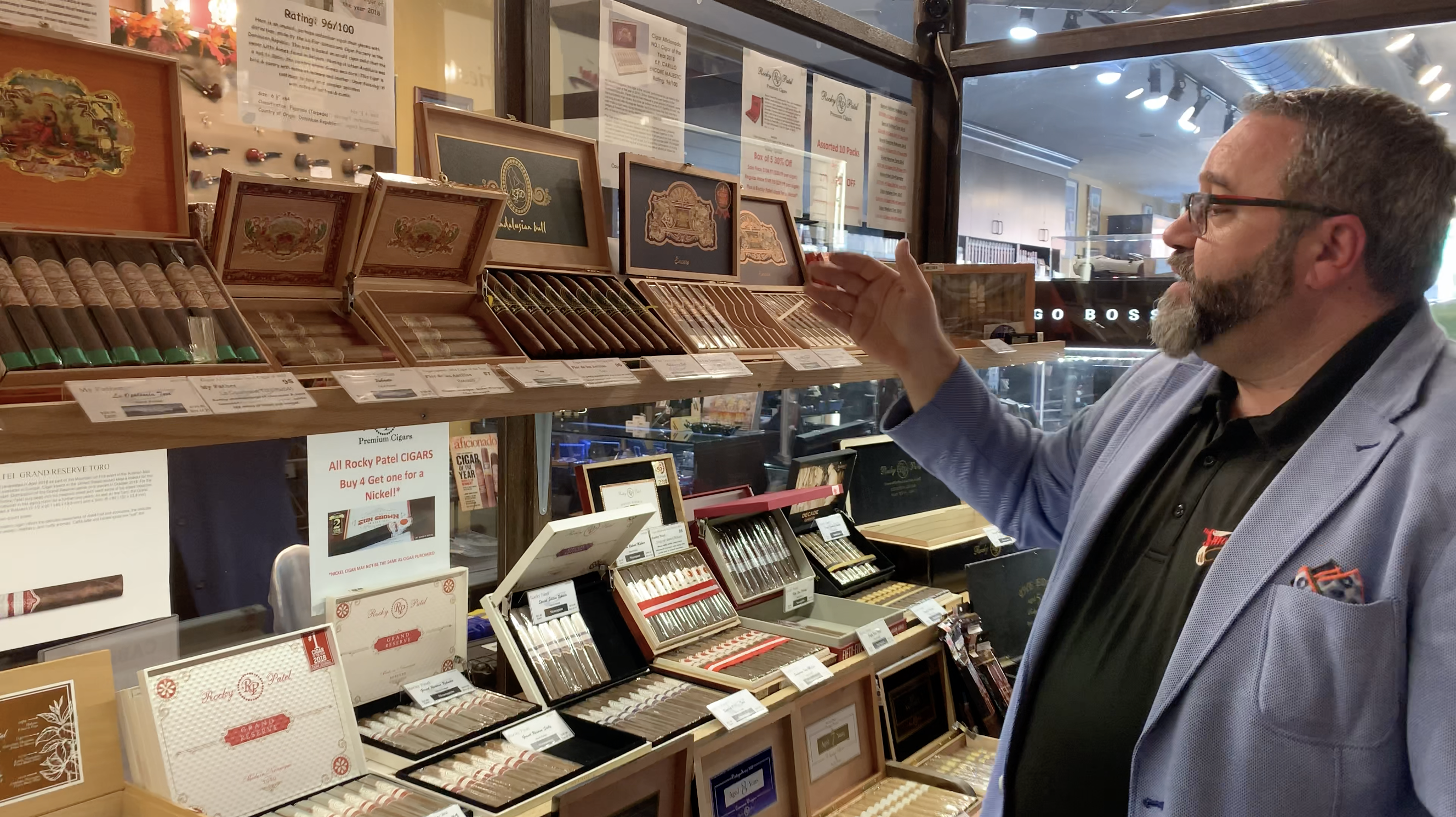
Trae Zammit gestures towards and details some some of the store’s award-winning cigars on Oct. 28, 2019 (Masih Khalatbari/ T•). 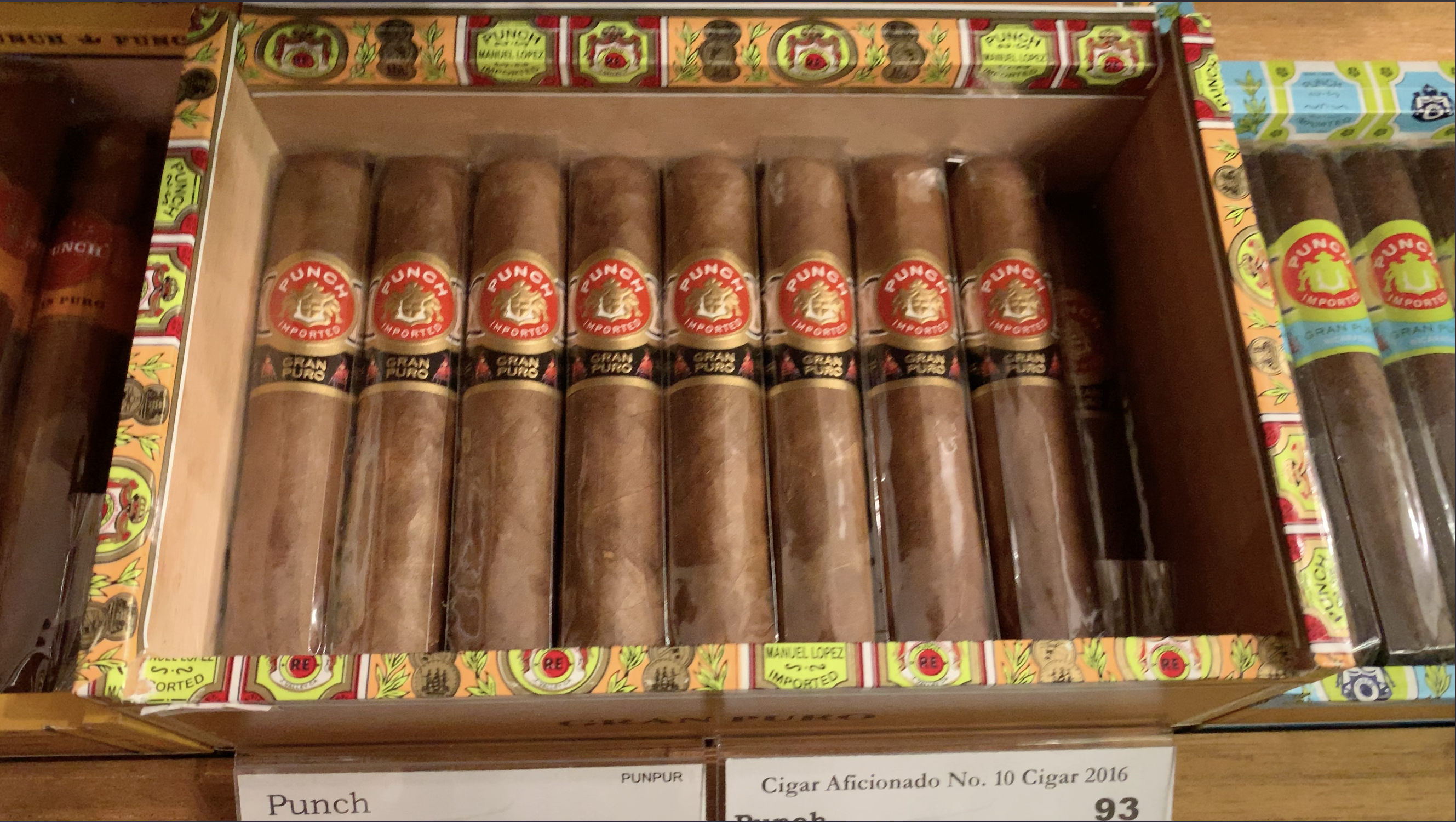
Many cigar boxes in the Smokin’ Cigar store are colourful and aesthetically pleasing, like box of Punch Gran Puro Santa Ritas on Oct. 28, 2019 (Masih Khalatbari/ T•). 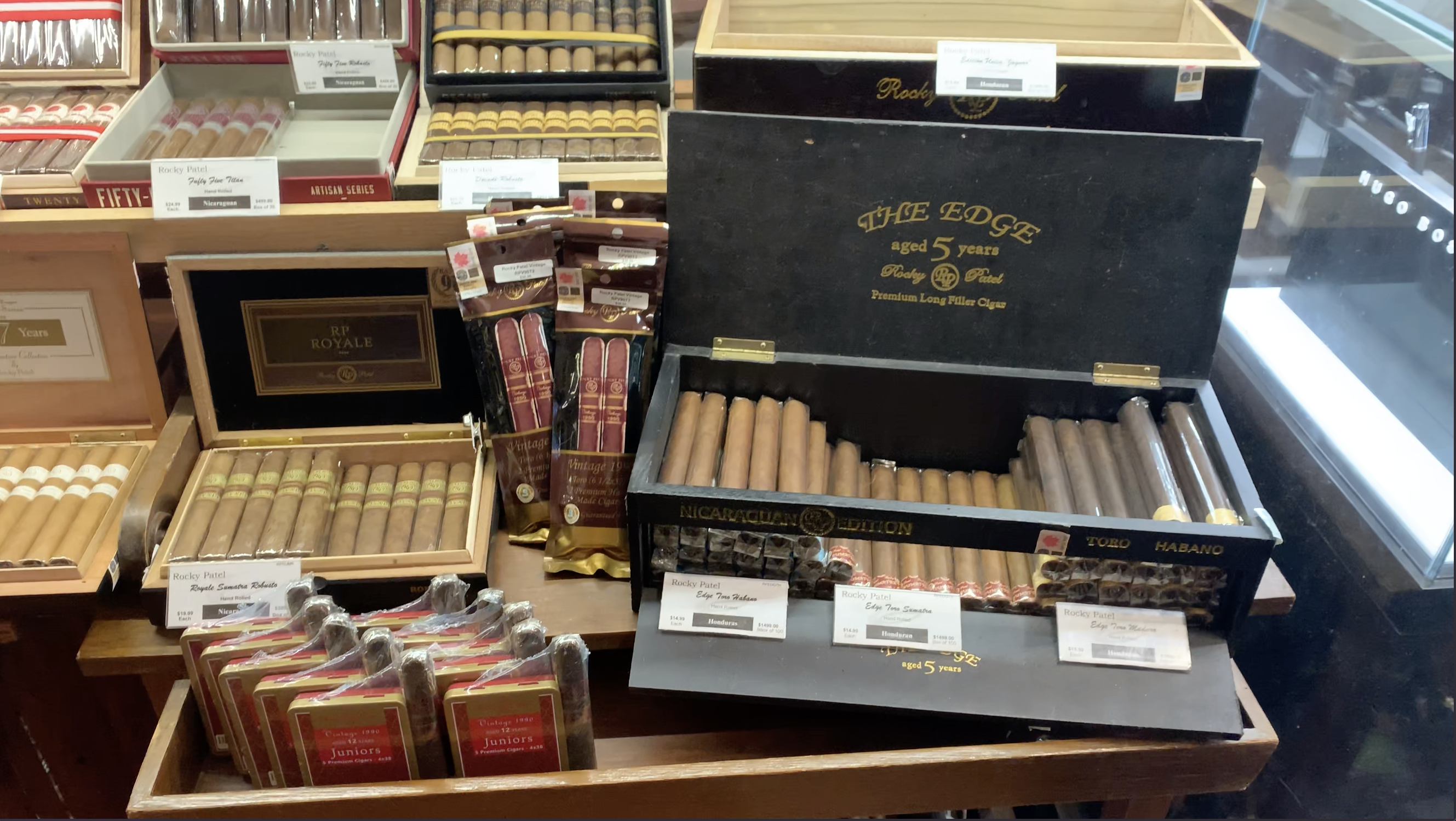
Trae Zammit said the variety of cigars and cigar packaging make their standardization difficult to implement. Here, a variety of cigars and cigar packaging sit on a small portion of one shelf in The Smokin’ Cigar’s cigar room (Masih Khalatbari/ T•). 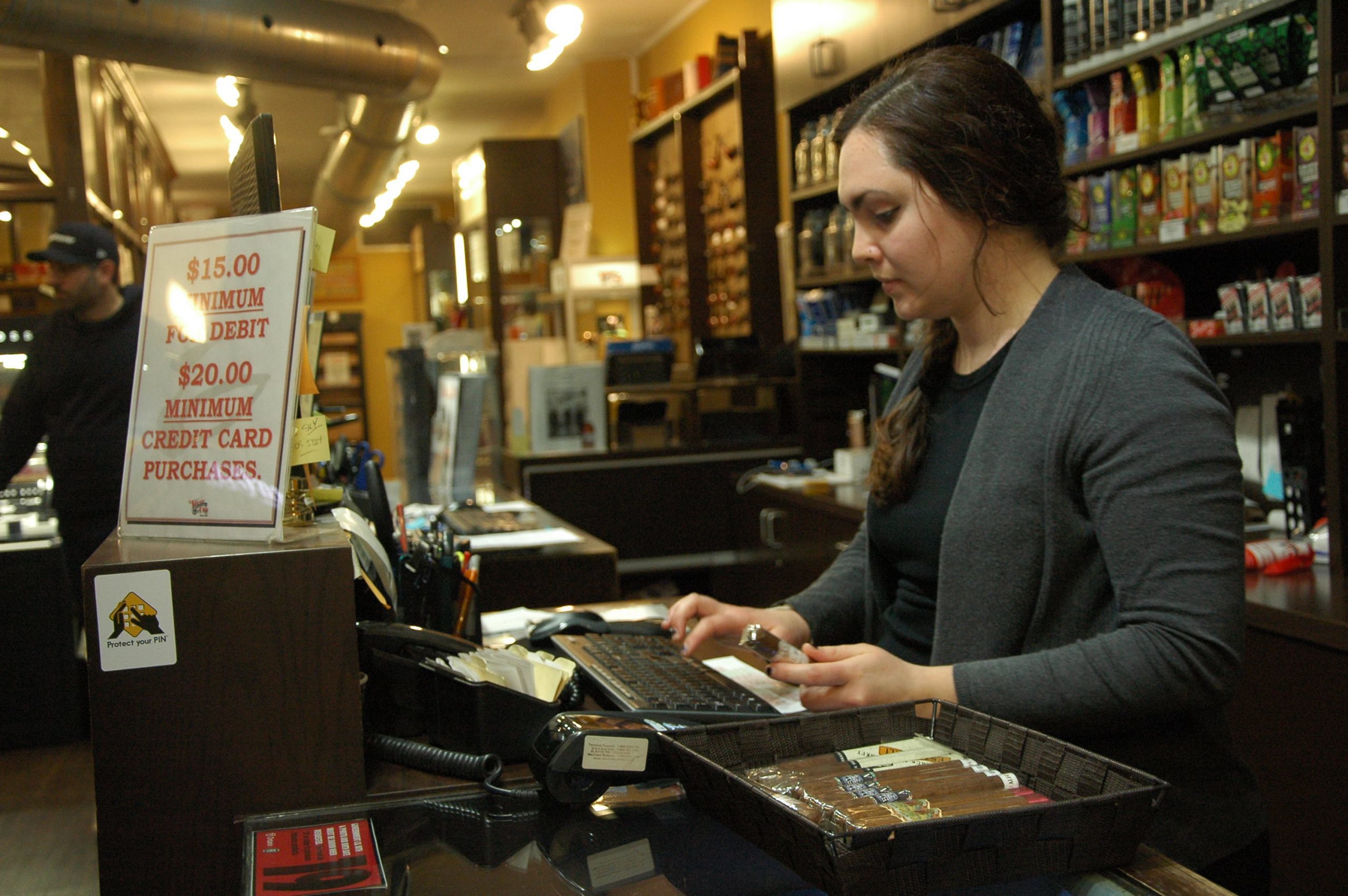
After a customer picks them out, the cigars are put in a basket and rung up at the cash register by employee Michelle Ronadson on Oct. 28, 2019 (Masih Khalatbari/ T•). 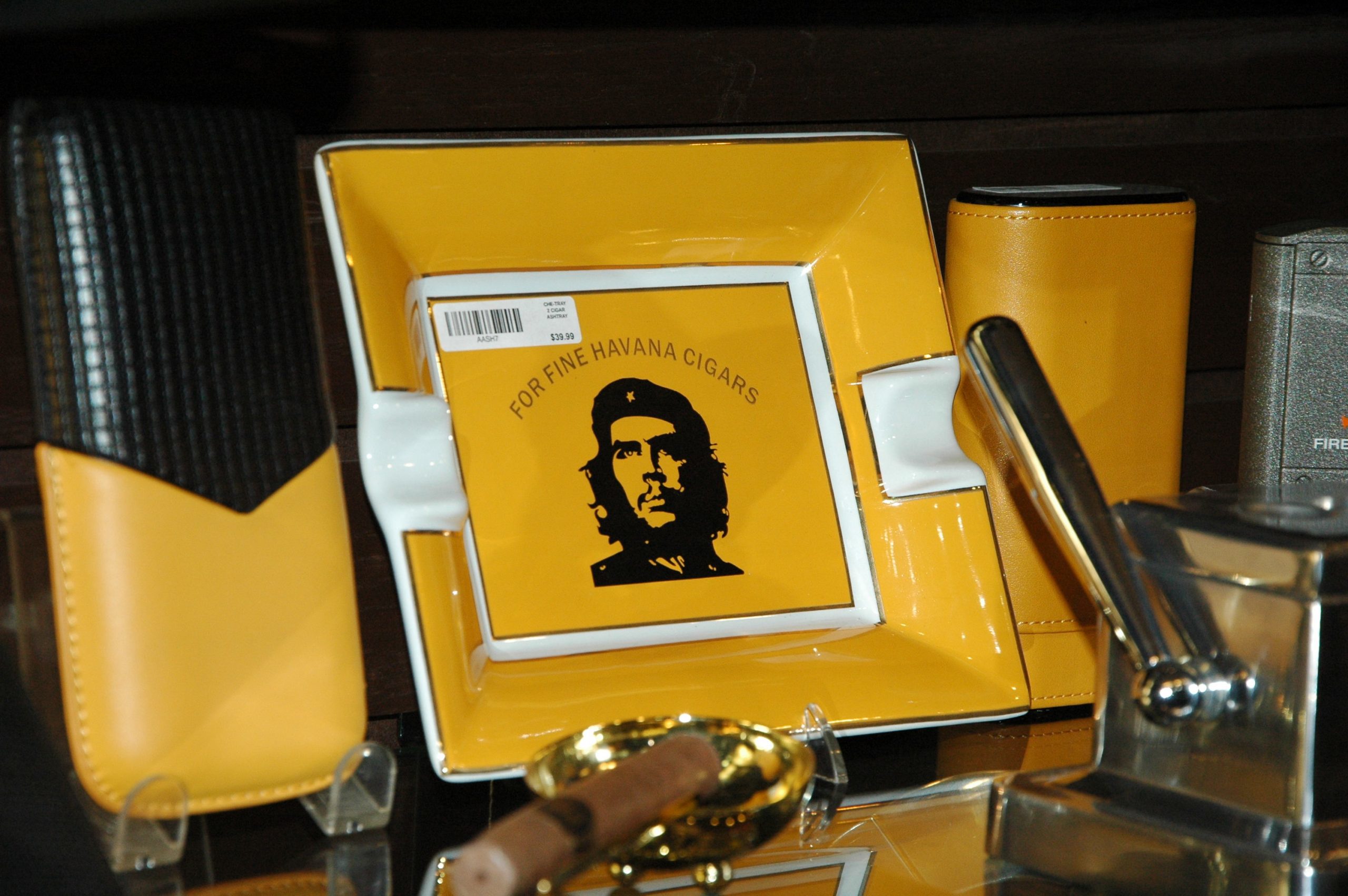
The Smokin’ Cigar also sells tobacco accessories, like this Che Guevera-themed cigar kit pictured on Oct. 28, 2019 (Masih Khalatbari/ T•). 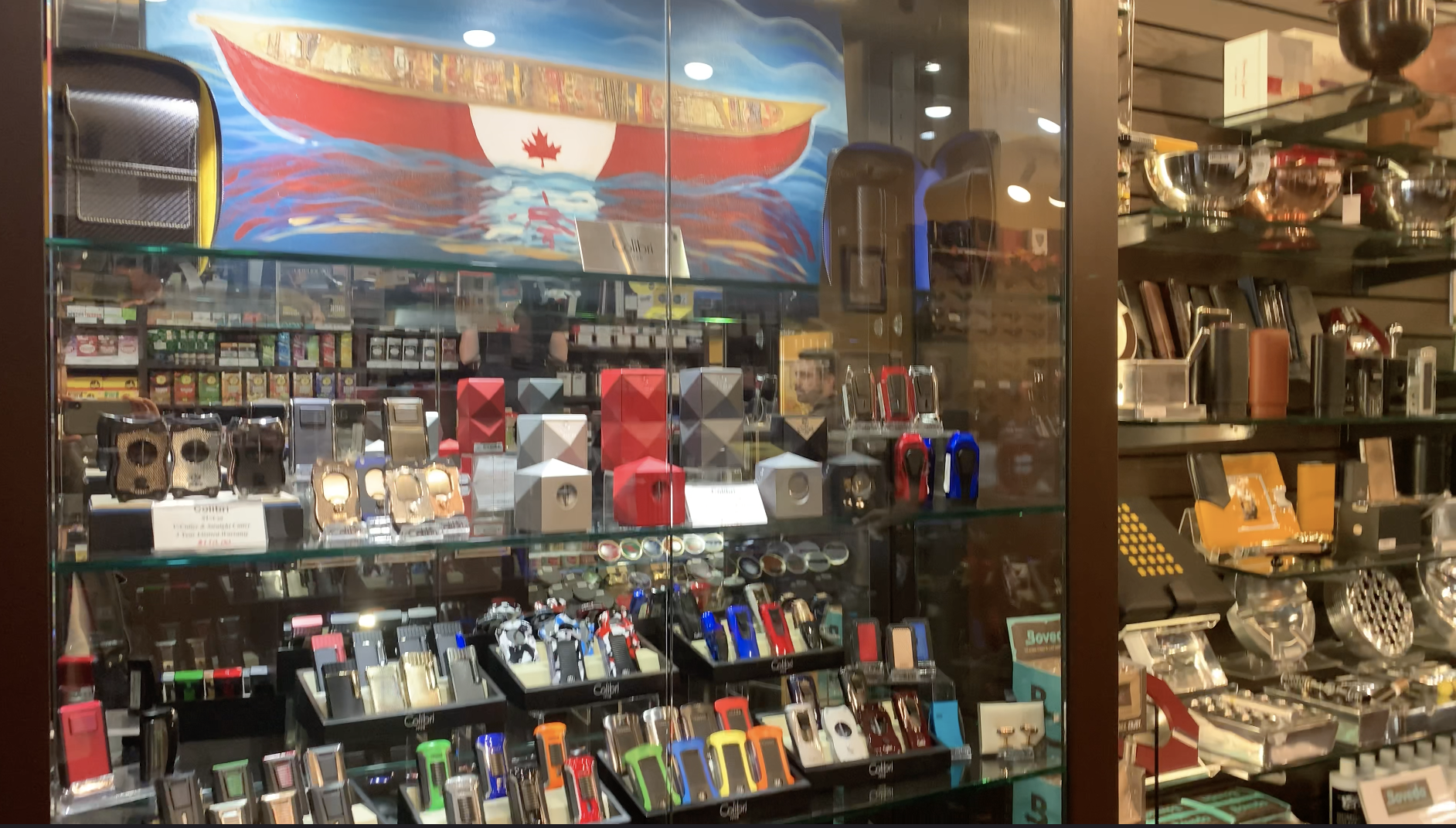
The store also carries a wide selection of high-end lighters enclosed in glass casings. Oct. 28, 2019 (Masih Khalatbari/ T•). 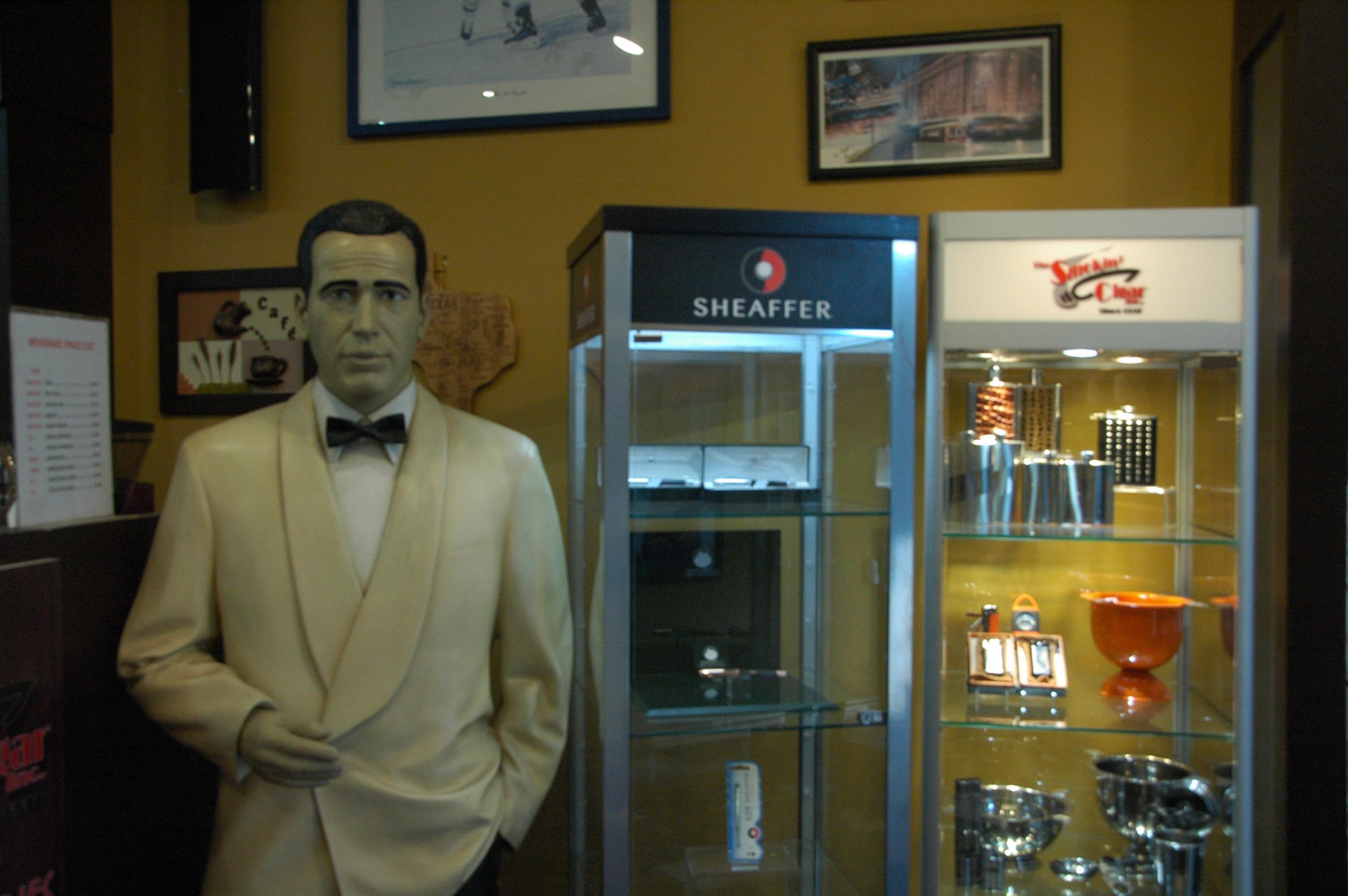
The Smokin’ Cigar is a hallmark of classy culture, bearing momentos like this statue of Casablanca actor Humphrey Bogart photographed on Oct. 28, 2019 (Masih Khalatbari/ T•). 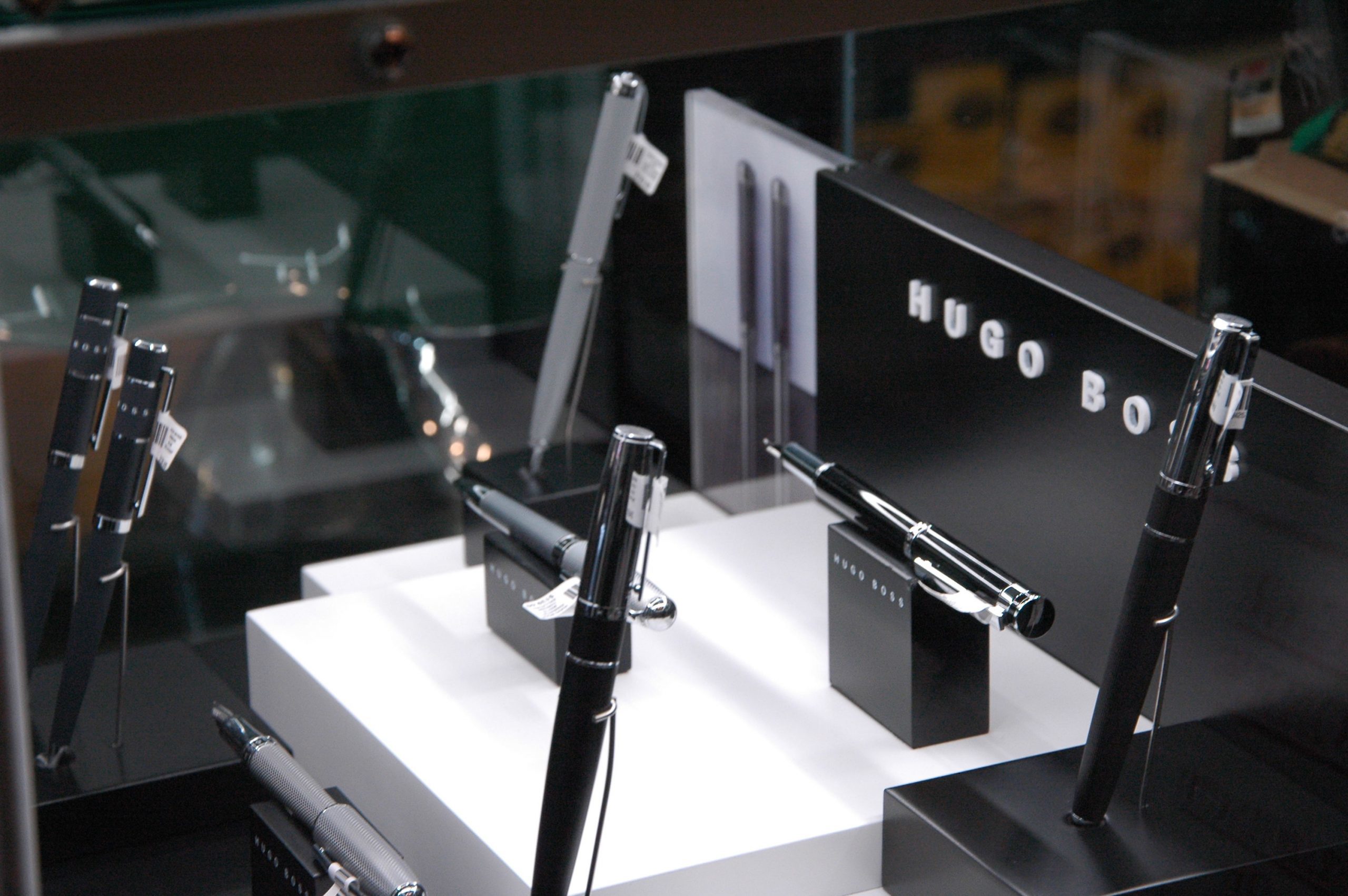
The store also carries other luxury goods on par with cigar culture, like this glass case of Hugo Boss brand pens photographed on Oct. 28, 2019 (Masih Khalatbari/ T•). 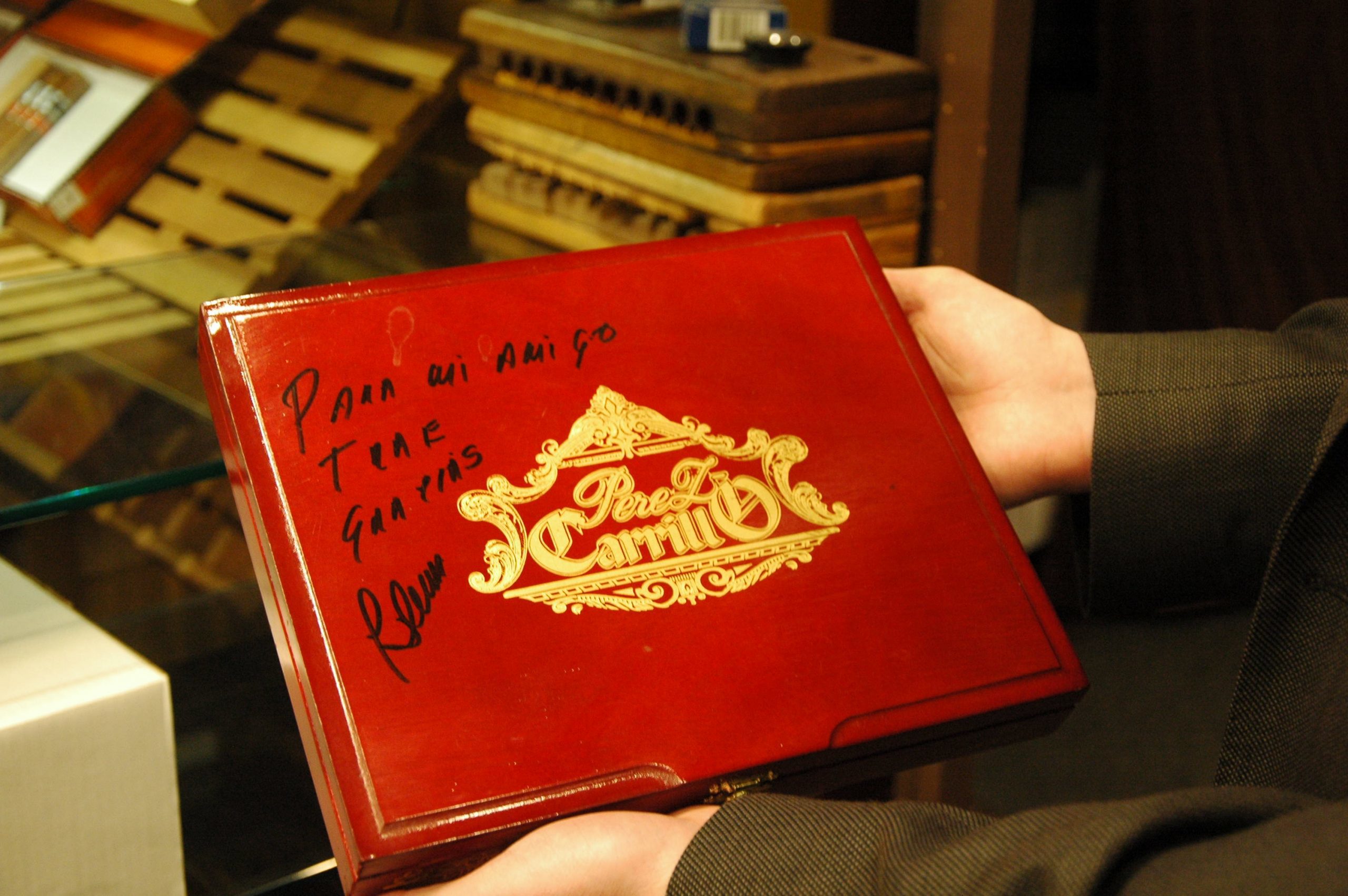
The store showcases gifts given to Zammit, like this cigar case signed by José Blanco, the former senior vice president of the oldest Nicaraguan cigar company. Pictured on Oct. 28, 2019 ((Masih Khalatbari/ T•). 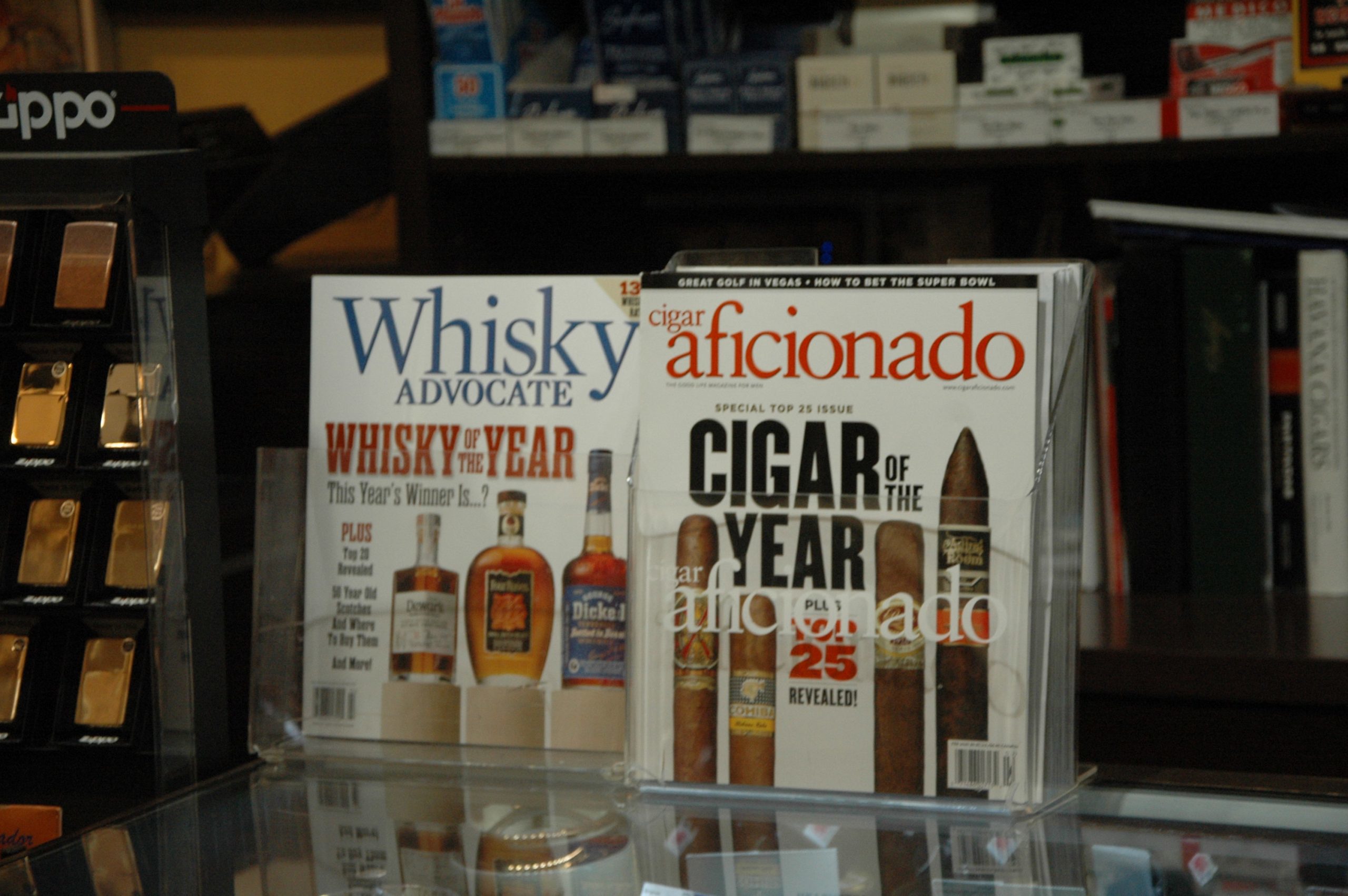
Luxury lifestyle magazines are another commodity at The Smokin Cigar, like these Whiskey Advocate and Cigar Aficionado magazines on the counter on Oct. 28, 2019 (Masih Khalatbari/ T•). 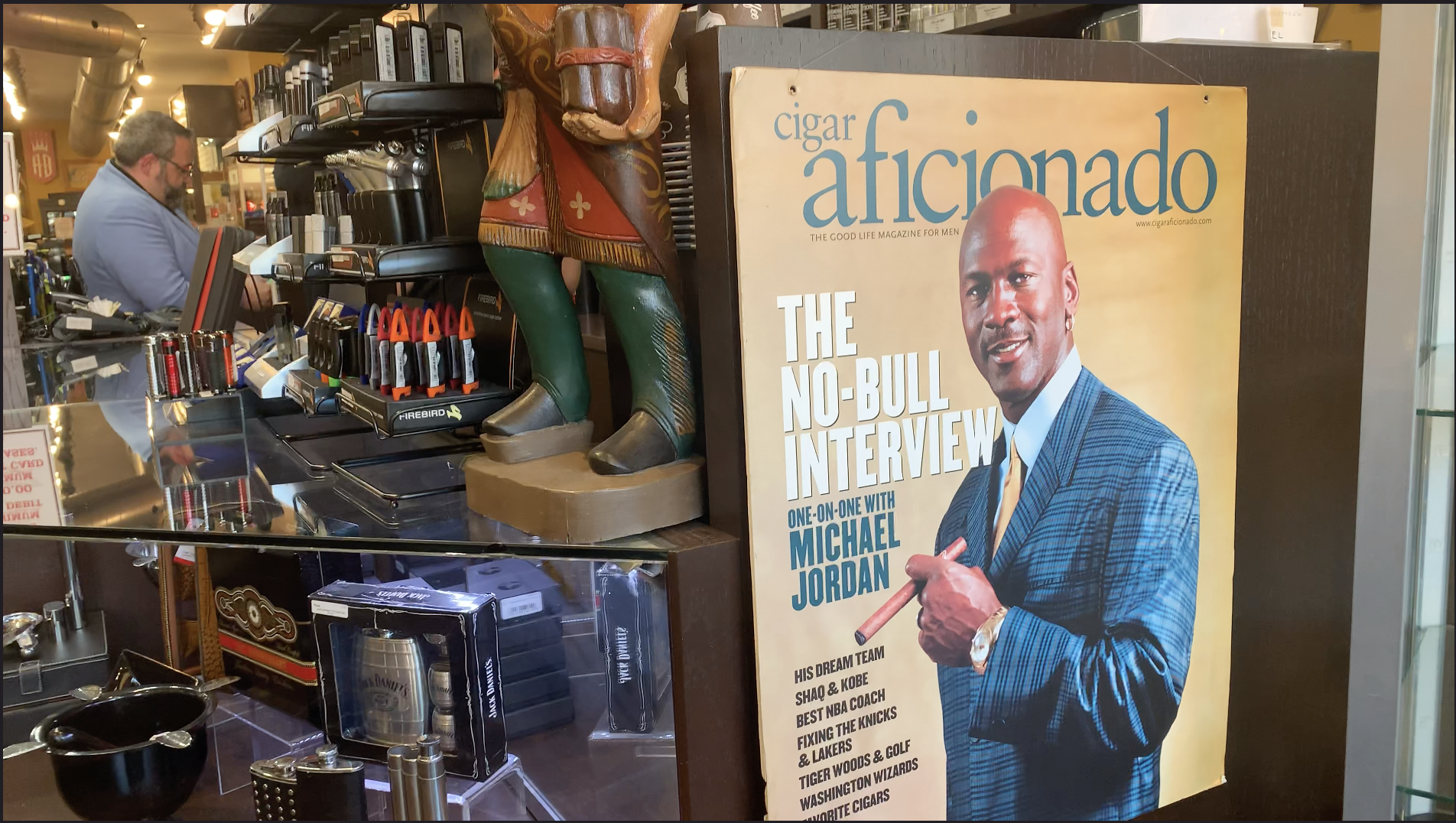
A large printed cover of a Cigar Aficianado magazine featuring Michael Jordan posted at The Smokin Cigar on Oct. 28, 2019 (Masih Khalatbari/ T•). 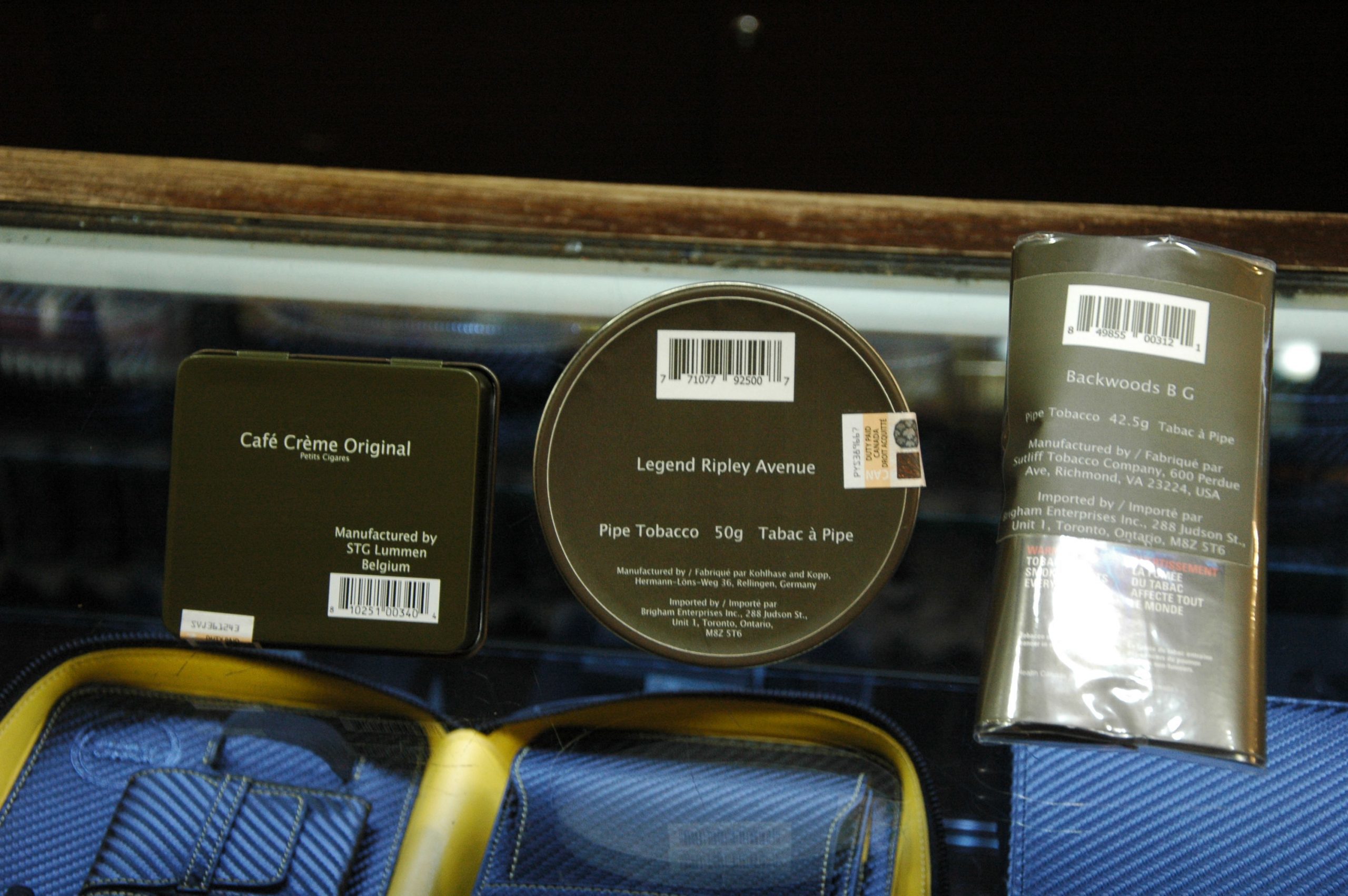
Three standardized products sit on the counter of The Smokin’ Cigar on Oct. 29, 2019. Under federal legislation, all tobacco products sold in Canada are now required to bear this identical plain packaging: (Masih Khalatbari/ T•). 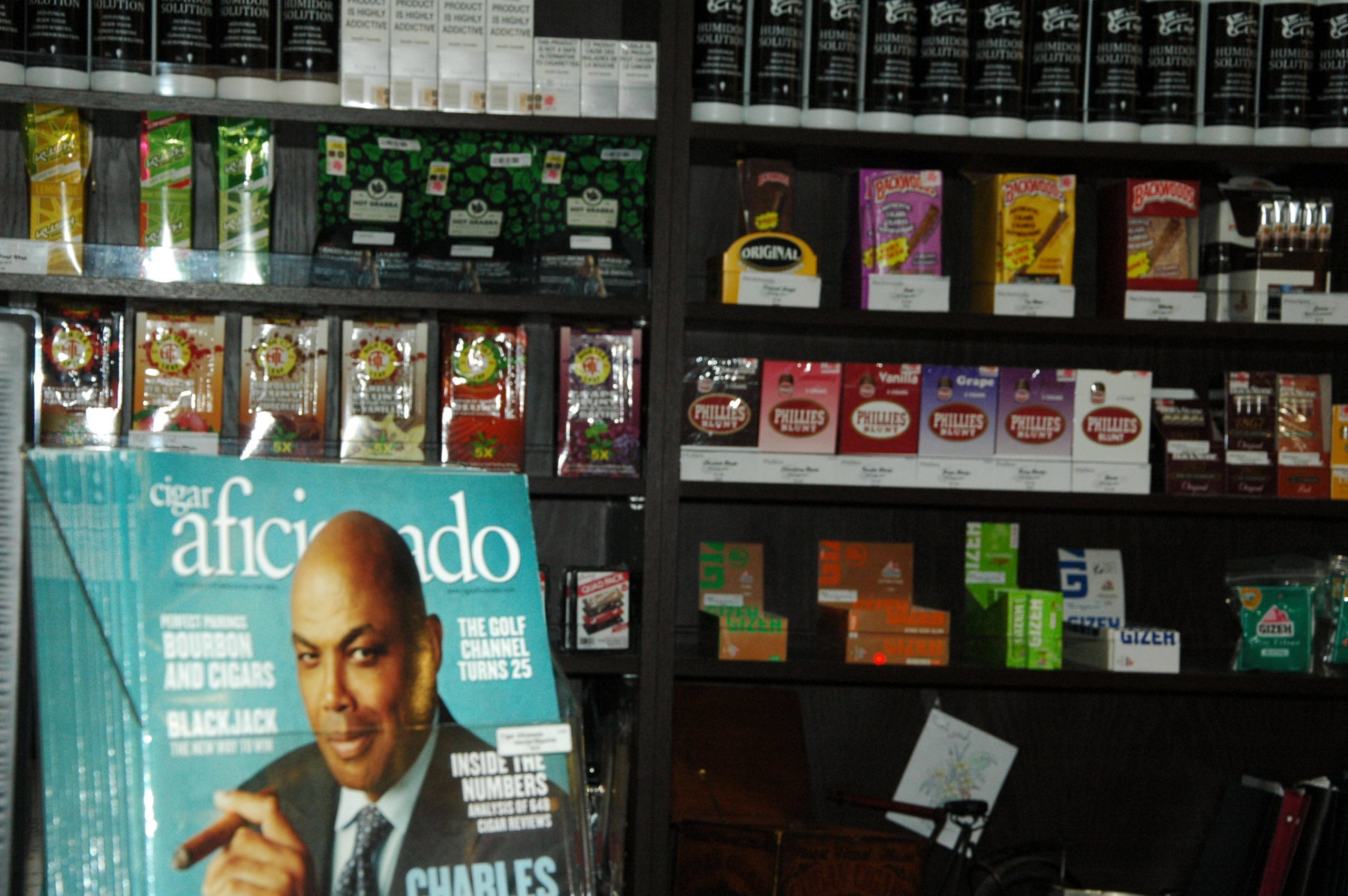
Mass-market, machine-made tobacco products that Zammit considers to be fair for standardized packaging sits in the background, much different from the luxurious standards of the Cigar Aficionado magazine in the foreground that showcases, top quality premium cigar products. Photographed on Oct. 28, 2019 (Masih Khalatbari/ T•).
His university days are when Zammit discovered cigars. At parties, when most people were rolling up joints or lighting up cigarettes, he’d be the only one with a cigar in his hand. When he’d pull one out, he’d get all sorts of questions. “What’s that? Tell me about it. What’s going on?” he recounts, chuckling.
As people asked more questions, he took more interest in the answers. He became enthralled in cigar history and culture. Soon, Zammit and his friends would be playing cards with a fine glass of single malt scotch, cigars in hand. “Every time I open a box of cigars, it’s like Christmas morning for me,” he says.
Back in the day in Leaside, he once strode into a variety store where a small premium tobacco section caught his eye. It was both odd and exciting for him to see luxury cigars and a pipe board in a variety shop, let alone in the neighbourhood he treasured. “And that’s what kind of sparked me,” he says.
He thought of the scene on that part of Bayview Avenue: an interior wine shop, an upscale barber, a specialty car store called Auto File. This was the perfect spot to open up a cigar shop.
In 1997, Zammit opened The Smokin’ Cigar, a premium cigar shop at the tail end of Leaside on Bayview Avenue.
So, is he living the dream?
“Well, the short answer is, I was,” he says.
Since he opened the store, the stigma and concern surrounding tobacco has amplified, and it hasn’t left the luxury cigar industry untouched.
Although Zammit says most government regulation is fair, standardized packaging for premium products is not.
Since November 2019, all tobacco products sold in Canada are required to bear identical plain packaging: a drab dark brown colour, no designs or logos, no embossing or decorative features, with only the brand name in generic font to distinguish one pack from another. “You know, we got to make sure that we police ourselves as an industry but the government’s made a mistake on this one,” he says.
(Left) As plain packaging sets in, The Smokin’ Cigar is engulfed in its drab brown. Plain-packaged pipe tobacco cases contrast branded ones beneath the counter of the store on Oct. 28, 2019 (T•/ Masih Khalatbari). (Right) All of the pipe tobacco in The Smokin’ Cigar, like the ones under the counter, is now standardized. There is also noticeably fewer available than before on March 20, 2020 (T•/ Masih Khalatbari).
Behind the counter of The Smokin Cigar are the same kinds of tobacco products that you can find at most convenience stores: assembly-line cigarillos, e-liquids, cigarettes, and cheap cigars that people use to roll cannabis. These are the kinds of products Zammit thinks should have standardized packaging. The territory for that type of product in his shop, however, consists only of a single shelf.
The store as a whole is a hallmark of a niche culture of luxury. This is perhaps best represented by the “Cigar Aficionado” magazines that showcase the likes of Matthew McConaughey and Michael Jordan flexing cigars in their fine suits. The combined face of cigar culture is exactly this: a well-off gentleman of quality relaxing with a cigar in hand for an hour, not someone in need of relief from stress for a few minutes.
“I don’t sell cigars, I sell happiness,” Zammit says. He points out that people don’t buy cigars for a nicotine fix. His customers often come to him because they’re celebrating an occasion: the birth of a child, a wedding, or retirement.
“Unfortunately, [premium cigars] are just lumped into Big Tobacco,” he says, referring to the five tobacco industry giants that own a significant sum of the intentional markets. He describes Big Tobacco products as mass-produced and pumped with preservatives, additives, and flavouring.
The premium tobacco products his store specializes in are high quality, hand-rolled cigars and natural tobacco that rely on proper storage for preservation instead of chemicals.
“Premium cigars have up to, some will say, 35,000 different varieties of hand-made cigars … because they’re so specific and so unique, which is pretty cool. I call that the miracle of tobacco because as you change the cigar, you get a different experience from it,” says a smiling Zammit, for a moment forgetting about plain packaging.
Zammit, as well as others in the industry, says that the government has used a broad paintbrush to cover the entire tobacco industry. “It’s catastrophic to us because if you plain package everything, including premium cigars, it’s going to eliminate about 50 per cent of the product that I sell in the premium category,” he says.
Plain packaging was a worry for Zammit in the fall of 2019 when the government was still only considering implementing the legislation. Zammit was anxious, he always planned on selling the business or passing the torch to his children who may want to run the store.
Now, the colour inside The Smokin’ Cigar slowly engulfs in drab brown. Zammit dreads the future and shakes with frustration as he estimates that the Canadian premium cigar industry may be obsolete within the next four years, along with the Smokin’ Cigar.
Talking about the future, he’s obviously more distressed, grumbling as he talks about what is to come. “This is what I call the destruction of an industry.”
